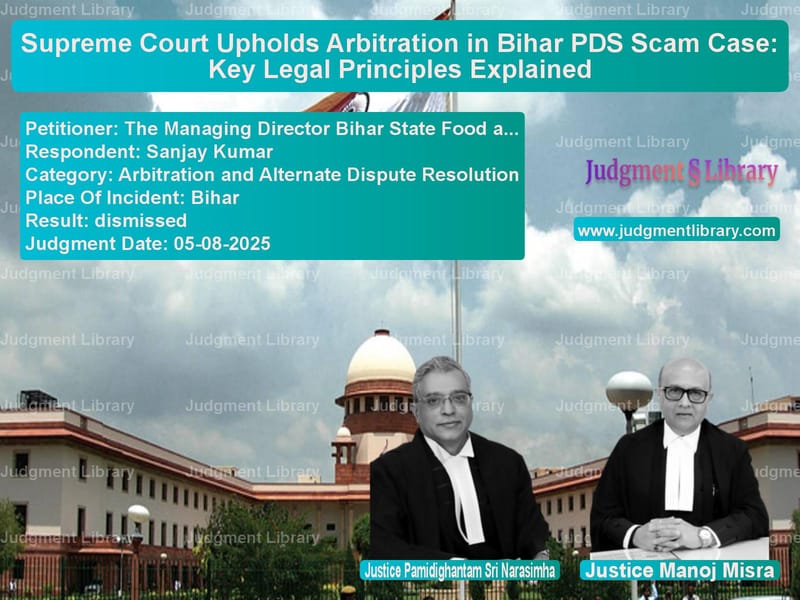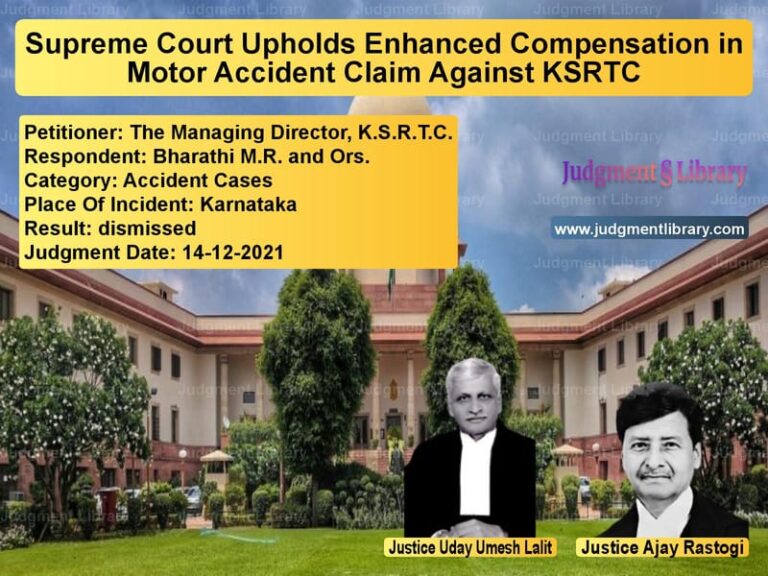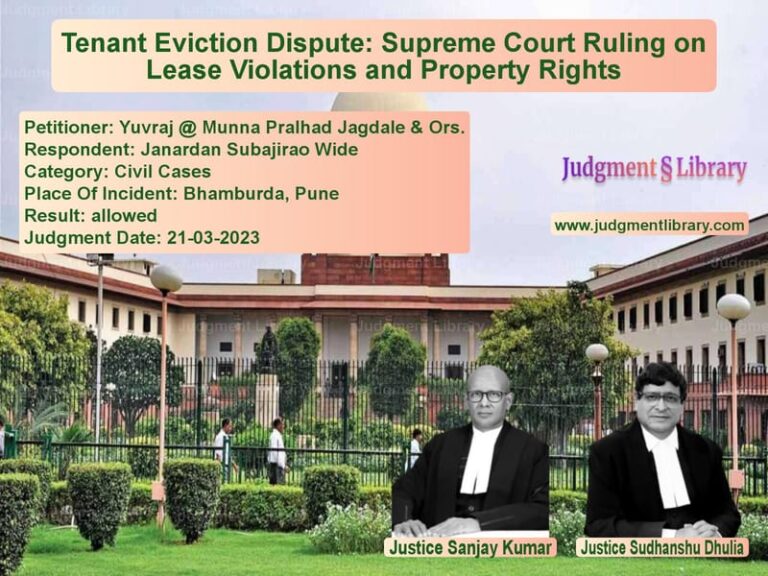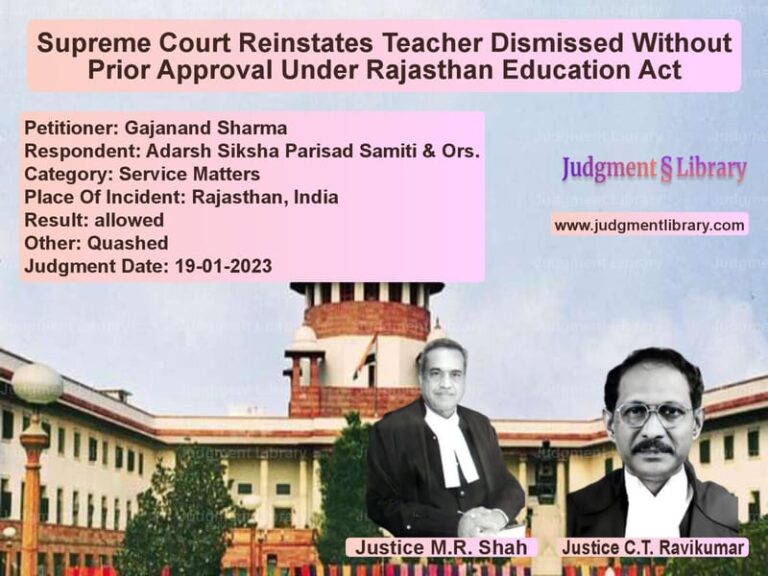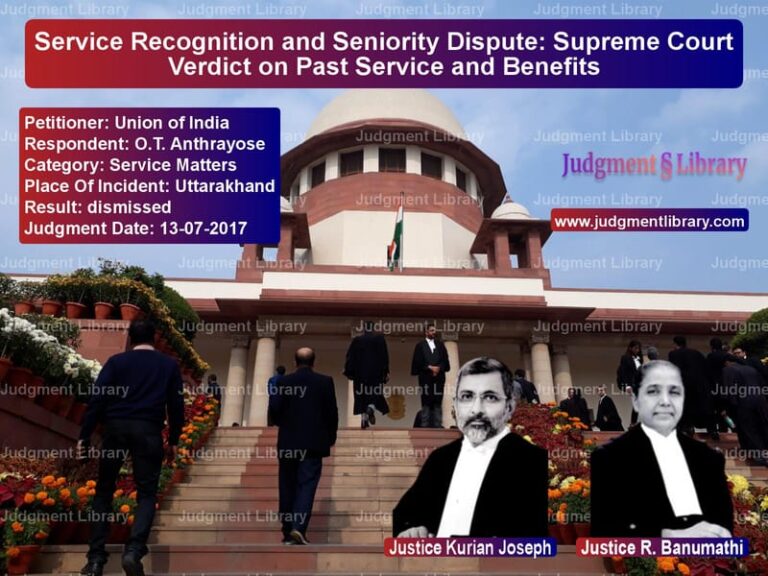Supreme Court Upholds Arbitration in Bihar PDS Scam Case: Key Legal Principles Explained
In a landmark judgment that clarifies the boundaries between criminal proceedings and arbitration, the Supreme Court of India recently addressed a complex legal battle involving allegations of massive fraud in Bihar’s Public Distribution System. The case, which involves claims of misappropriation exceeding fifteen hundred crores rupees, pitted the Bihar State Food and Civil Supply Corporation against numerous rice millers accused of failing to deliver processed rice after receiving government paddy. The legal dispute centered on whether arbitration could proceed despite serious criminal allegations and ongoing investigations into what has been described as one of Bihar’s largest procurement scams.
The Background of the Case
The dispute originated from agreements signed in 2012-13 between the Bihar State Food and Civil Supply Corporation and various rice millers across the state. Under a scheme coordinated with the Food Corporation of India, the Corporation procured paddy from farmers and entrusted it to rice millers for custom milling. The millers were supposed to return 67% of the paddy as processed rice for distribution through the Public Distribution System. However, the Corporation alleged that many millers failed to deliver the agreed quantities of rice, leading to massive losses to the public exchequer.
The agreements contained two crucial clauses: Clause 15 allowed recovery of dues as land revenue under the Bihar and Orissa Public Demands Recovery Act, 1914, while Clause 16 provided for arbitration, stating that “In case of disputes both parties agree to settle the issue(s) on mutual discussions. Failure to reach agreement the matter will be referred to Arbitrator. It has been also agreed that the Arbitrator will be District Collector of the concerned District whose decision shall be final, concerning the dispute referred to him.”
When the Corporation initiated recovery proceedings under the Recovery Act, the rice millers challenged these actions through writ petitions. The High Court directed the parties to pursue arbitration as provided in their agreements. Meanwhile, the scale of the alleged fraud became apparent, with the Corporation filing approximately 1200 FIRs against rice millers across Bihar. The Enforcement Directorate also initiated proceedings under the PMLA, and the High Court constituted a Special Investigation Team to investigate what appeared to be a widespread conspiracy.
The Legal Battle Over Arbitrability
The core legal question before the Supreme Court was whether disputes involving serious allegations of fraud and criminality could be referred to arbitration. The appellant Corporation, represented by senior counsel Mr. Ranjit Kumar, argued vehemently that the disputes had become non-arbitrable due to the initiation and pendency of criminal cases involving massive public fraud.
The Corporation contended that the fraud allegations were not mere contractual disputes but involved serious criminal offenses under Sections 420 and 409 of IPC, with ramifications affecting public governance and essential commodity distribution. They argued that such disputes, involving allegations of criminal misconduct that transcend inter-se disputes between contracting parties and attain public implications, should not be submitted to arbitration.
On the other side, the respondents (rice millers), represented by senior counsel Mr. Amit Sibal, maintained that the existence of an arbitration clause in the agreement mandated reference to arbitration, regardless of parallel criminal proceedings. They argued that the Arbitration and Conciliation Act, 1996, provided a comprehensive framework for dispute resolution that should be honored.
The Supreme Court’s Legal Analysis
The Supreme Court, in its judgment delivered by Justices Pamidighantam Sri Narasimha and Manoj Misra, undertook a detailed examination of the legal principles governing arbitrability in cases involving allegations of fraud. The Court restated several key principles that have evolved through previous judgments:
The Court noted that “Same set of facts may lead to civil and criminal proceedings. A civil dispute could involve questions of coercion, undue influence, fraud, misrepresentation for example, and such disputes can be adjudicated as civil proceedings for determination of civil or contractual liabilities between the parties. The mere fact that criminal proceedings can or have been instituted in respect of the same incident(s) would not per se lead to the conclusion that the dispute which is otherwise arbitrable ceases to be so.”
The judgment elaborated on the distinction between “serious fraud” and “fraud simpliciter,” noting that disputes involving serious fraud may not be submitted to arbitration when they “are very serious allegations of fraud which make a virtual case of criminal offence or where allegations of fraud are so complicated that it becomes absolutely essential that such complex issues can be decided only by the civil court on the appreciation of the voluminous evidence that needs to be produced.”
The Court provided crucial clarity on what constitutes “serious fraud” by stating: “At least one instance of serious fraud will be where disputes involving allegations having criminal law implications transcend inter se disputes between the contracting parties and attain public implications, where the ramifications could directly or indirectly affect non-parties and impact, integrity in governance, accountability in public service, distribution of essential commodities, safety and security of the nation for example. Consideration of such disputes have public law implications and shall ‘not be submitted to arbitration’.”
The Turning Point: Scope of Section 11 Proceedings
Despite this extensive discussion on the principles of arbitrability, the Supreme Court ultimately based its decision on a fundamental procedural limitation. The Court emphasized that after the introduction of Section 11(6A) in the Arbitration and Conciliation Act, the scope of examination by a court in appointment of arbitrators is strictly limited.
The Court quoted from the recent seven-judge bench decision in Interplay Between Arbitration Agreements, which held: “The legislature confined the scope of reference under Section 11(6-A) to the examination of the existence of an arbitration agreement. The use of the term ‘examination’ in itself connotes that the scope of the power is limited to a prima facie determination… Therefore, the scope of examination under Section 11(6-A) should be confined to the existence of an arbitration agreement on the basis of Section 7.”
The Court further elaborated that “The Referral Court is not the appropriate forum to conduct a mini-trial by allowing the parties to adduce the evidence in regard to the existence or validity of an arbitration agreement. The determination of the existence and validity of an arbitration agreement on the basis of evidence ought to be left to the Arbitral Tribunal.”
The Final Ruling and Its Implications
Applying these principles to the case at hand, the Supreme Court found that since there was undoubtedly an arbitration agreement between the parties, the matter had to be referred to arbitration. The Court explicitly stated: “We have examined the matter in detail. There is an arbitration agreement. The matter must end here. While we agree with Mr. Ranjit Kumar submissions that his client has much to say, let all that be said before the arbitral tribunal.”
The Court dismissed the appeals, thereby upholding the High Court’s order appointing arbitrators. However, it kept open all the issues raised by the Corporation regarding non-arbitrability, limitation, and other jurisdictional matters, directing that “These issues shall be taken up as preliminary issues and the arbitral tribunal will consider them after giving opportunity to all the parties.”
This judgment represents a significant reinforcement of the pro-arbitration stance adopted by Indian courts, particularly after the 2015 amendments to the Arbitration Act. It clarifies that while serious allegations of fraud with public implications might render disputes non-arbitrable, the determination of whether such allegations qualify as “serious fraud” must primarily be made by the arbitral tribunal itself, except in clear cases where the arbitration agreement itself is impeached by fraud.
The decision strikes a careful balance between honoring party autonomy in dispute resolution through arbitration and safeguarding public interest in cases involving serious allegations of fraud affecting public funds and governance. It provides much-needed clarity on the limited role of courts at the reference stage while preserving the ability of arbitral tribunals to determine their own jurisdiction, including questions of arbitrability.
Petitioner Name: The Managing Director Bihar State Food and Civil Supply Corporation Limited & Anr..Respondent Name: Sanjay Kumar.Judgment By: Justice Pamidighantam Sri Narasimha, Justice Manoj Misra.Place Of Incident: Bihar.Judgment Date: 05-08-2025.Result: dismissed.
Don’t miss out on the full details! Download the complete judgment in PDF format below and gain valuable insights instantly!
Download Judgment: the-managing-directo-vs-sanjay-kumar-supreme-court-of-india-judgment-dated-05-08-2025.pdf
Directly Download Judgment: Directly download this Judgment
See all petitions in Arbitration Awards
See all petitions in Commercial Arbitration
See all petitions in Arbitration Act
See all petitions in Dispute Resolution Mechanisms
See all petitions in Contract Disputes
See all petitions in Judgment by P.S. Narasimha
See all petitions in Judgment by Manoj Misra
See all petitions in dismissed
See all petitions in supreme court of India judgments August 2025
See all petitions in 2025 judgments
See all posts in Arbitration and Alternate Dispute Resolution Category
See all allowed petitions in Arbitration and Alternate Dispute Resolution Category
See all Dismissed petitions in Arbitration and Alternate Dispute Resolution Category
See all partially allowed petitions in Arbitration and Alternate Dispute Resolution Category

